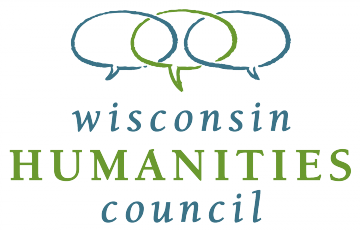Acknowledgments: Mount Horeb Historical Society
Creators, Collectors and Communities is the result of an ongoing collaboration between the Mount Horeb Area Historical Society, University of Wisconsin-Madison Art History Professor Dr. Ann Smart Martin and four consecutive semesters of engaged and creative Material Culture students.
This synergistic partnership has brought new perspectives, depth and meaning to the interpretation of Southwestern Dane County’s cultural history.
We thank the diverse and talented team that tirelessly invested time and expertise to this exhibit, without which it would not have been possible:
Johnna Buysse, MHAHS Curator of Collections & Education, Project Director
Dr. Ann Smart Martin, Academic Advisor
Cortney Anderson
Larissa Cangussu
Alyssa Kowis
Jenna Madsen
Jared Schmidt
Laura Schmidt
Peter Thurlow
Steel Wagstaff, Technical Consultant
Amanda Larson, Technical Consultant
Brian Bigler, Exhibit Designer
Nadia Niggli, Exhibit Designer
Dr. Janet C. Gilmore, Exhibit Consultant
Dr. James Leary, Exhibit Consultant
Jennifer Bastian, Exhibit Photographer
Donna Read, Research Assistant
Nancy Thousand, Research Assistant
Nancy Nye Hunt, Editor
Destinee Udelhoven, MHAHS Director
Additional special thanks are due to our patient and dedicated, all-volunteer Exhibit Fabrication Team:
Wayne Hefty
Doug Nesheim
David Schmidt
Please note that the object study essays are the intellectual property of the listed author. While the Mount Horeb Area Historical Society provided resource materials from our library, archival and three-dimensional collections to assist the research process, the students were given free rein (under the academic supervision of Dr. Ann Smart Martin) to pursue any research course so desired. As such, any views, findings, conclusions or recommendations expressed within these essays do not necessarily represent those of the Mount Horeb Area Historical Society.
This project was funded in part by a generous grant from the Wisconsin Humanities Council, with funds from the National Endowment for the Humanities. Any views, findings, conclusions or recommendations expressed in this project do not necessarily represent those of the National Endowment for the Humanities. The Wisconsin Humanities Council supports and creates programs that use history, culture, and discussion to strengthen community life for everyone in Wisconsin. Find out more at wisconsinhumanities.org.
 |
 |

